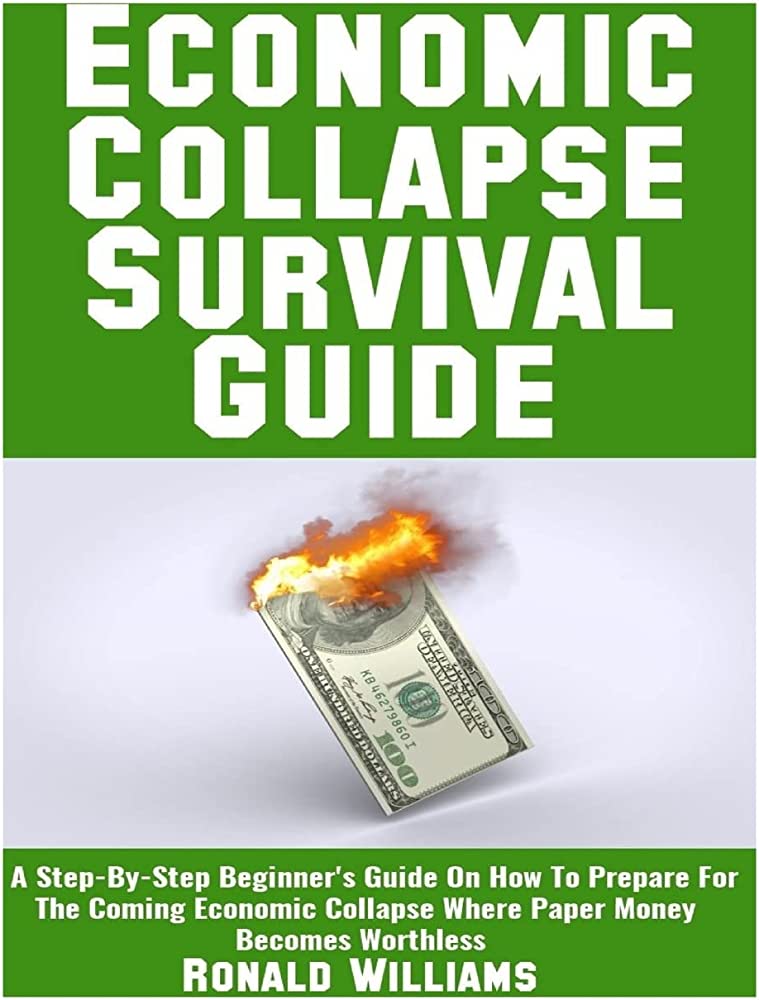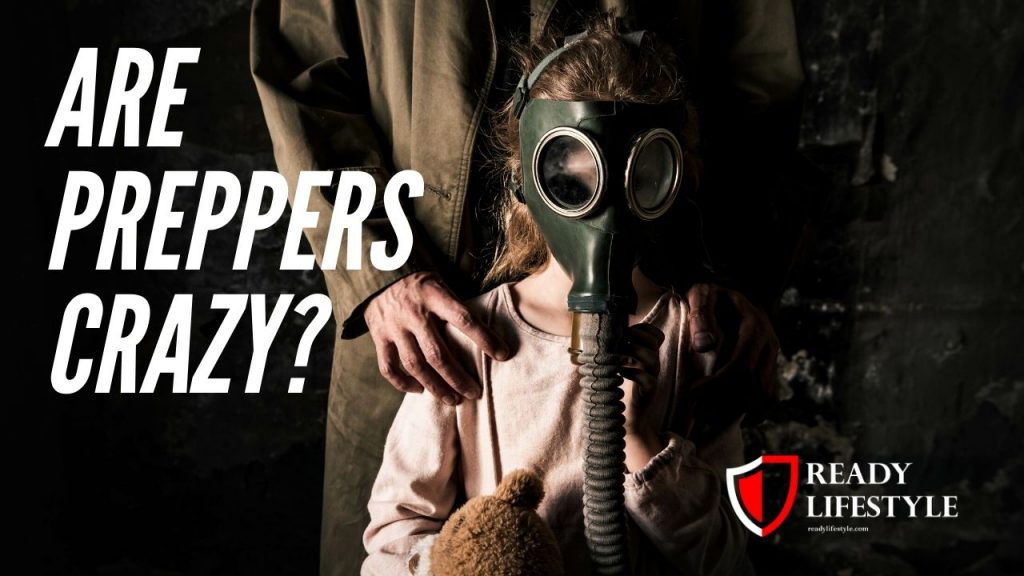
While you may not be "prepper" right now, it's never too late to start preparing for the worst. Start by stocking up non-perishable food, water, and other essentials. Next, you will need to expand your knowledge. It's impossible to prepare for everything all at once. Start slowly and work your way up. You will be better equipped than the majority to handle the worst of times.
It's never too soon to start planning
It is important to first take stock of your existing possessions. Don't buy expired goods, you probably bought them impulse. Keep track of the food you cook the most. Keep in mind that canned goods have the longest expiration dates. Next, establish a budget for your prep. Do not spend too much and then run out in a crisis.

Keep water in your stock
Make sure you have plenty of water on hand to help you get started in prepping. It's a good idea to stock up on three days' worth of water, but you can move up to seven and even 14 days as your supplies grow. A one-gallon plastic jug can be purchased at the grocery store for $1. Or, you can get a 55 gallon BPA-free, blue barrel. Add a little bleach to the water to make it last longer. This will ensure that the water stays fresh for at least one year. 7 teaspoons are required for every 55-gallon barrel.
Build a stockpile of non-perishable food
Make sure you have enough food to last the day. Non-perishable food can be stored for long periods of time, making it ideal for those who don't have easy access to fresh produce. Slowly start to buy one or two more cans each week. Put money each month into a fund to build your emergency food stash. Keep it in your bank account until you have reached the target amount. You can save money by purchasing bulk food, such canned goods or cereal.
A knowledge base is essential
Research cannot be done without a knowledgebase. Every research project and every paper, talk, and dataset contributes towards a knowledge base. While it is important to locate the relevant content, the next step involves organizing, annotating, and making it accessible. It is important to make this process simple and efficient in order to extract the maximum value. Read on for some ideas. These tips will help you to build a knowledge network.

Skills development
This course will help you learn the skills you need to prepare for your next trip. It may seem daunting, but there are important skills that you can learn today. Gardening is an excellent skill to have if you're in good health. You can use your gardening skills not only to improve your health but also to make sure you have enough food for the long-term. You can also learn knot tying. For many situations, knots are crucial. Carpentery is another skill that is helpful for many things.
FAQ
How do you stay calm in a survival situation
For most situations, calmness and patience are key. It's easy to panic in a survival situation, especially if you are stranded somewhere far from civilization. However, staying calm and patient will help you deal with any situation.
It's important to remember that you cannot change the outcome of a situation. The only thing you can control is how you respond to it. So even if you didn’t achieve all you wanted, you can still feel good.
It is essential to keep calm and collected in an emergency situation. This means that you must be mentally and emotionally prepared.
Mental preparation is about setting realistic expectations for yourself and setting clear goals.
Physical preparation involves ensuring that you have enough water, food, and fuel to last until rescue.
Once you have done both of these things, you are free to relax and just enjoy the experience.
What should you do first in a survival situation
When faced with emergency situations, the first thing to do is assess the situation. You should be aware of what is happening around and where you are.
Also, you need to be aware of what your environment can offer. For example, if you're in the middle of nowhere, you may not be able to use any form of communication.
If you don’t know what you are doing, you should start learning as quickly as you can.
If you're in any immediate danger, it is best to get medical attention immediately. If you're safe, you may want to spend some time gathering information and trying to figure out what has happened.
Why are basic survival skills important?
Basic survival skills include how to make shelter, fire, shelter, hunt, fish, and protect yourself. These skills are essential no matter where we live, but they become even more critical when traveling alone or in remote areas.
Survival skills also include things like first aid, self-defense, navigation, communication, and wilderness medicine. They are essential life-saving tools that should always be available before venturing into unknown territory.
In addition to these basic skills, many other valuable skills could prove useful while you are away from home. For example, if you plan on spending your vacation hiking through the mountains, learn some mountaineering techniques if you plan to go camping in the desert, learn how to survive in extreme temperatures. There are many ways you can prepare for any situation. So don't be afraid of trying new skills.
How long does it take to find help after becoming lost?
This depends on several factors:
-
Where you are
-
What type of terrain do you have?
-
Whether you have cell phone reception
-
Whether someone has seen you
-
It doesn't matter if your are hurt
-
Dehydration can be caused by several factors.
-
No matter if you've been drinking water.
-
Whether you have eaten recently
-
It doesn't matter if you are wearing the right clothing
-
You can carry a map or your compass.
-
How familiar can you be with the area
-
How many years has it been since your loss?
-
How much time did you spend searching for help
-
How much time does it take for people to notice you missing
-
How quickly they decide to search for you
-
How many rescuers are you able to attract?
-
How many rescues did you receive
What should you do in a survival situation
It's impossible to spend too much time thinking about what you should say next. You need to be prepared for any situation. Be prepared to deal with any unexpected problem.
It is important to be flexible and willing to learn if you find yourself in an unfamiliar situation.
If you are in a survival situation, you will likely encounter problems such:
-
You feel trapped in remote locations
-
Getting lost
-
Limited food supplies
-
Running low on water
-
Facing hostile people
-
Face to face with wild animals
-
Finding shelter
-
Fighting off predators
-
Making fire
-
Using tools
-
Building shelters
-
Hunting
-
* Fishing
What is your best survival tool in the event you lose everything?
The compass is a tool that tells us where north is. The compass also shows how far you have traveled from your starting point. The compass won't always show you the correct direction if you travel to mountains. However, if you're in a flat area, the compass should be able to show you the way.
If you don't have a compass, you could use an object such as a rock or tree for reference. However, you can still use a landmark as a way to navigate but it will be easier to determine north.
Statistics
- In November of 1755, an earthquake with an estimated magnitude of 6.0 and a maximum intensity of VIII occurred about 50 miles northeast of Boston, Massachusetts. (usgs.gov)
- The Dyrt PRO gives 40% campground discounts across the country (thedyrt.com)
- We know you're not always going to be 100% prepared for the situations that befall you, but you can still try and do your best to mitigate the worst circumstances by preparing for a number of contingencies. (hiconsumption.com)
- Without one, your head and neck can radiate up to 40 percent of your body heat. (dec.ny.gov)
External Links
How To
How to Make a Fish Trap That Will Survive
A fish trap is a device that is used to catch fish. It is composed two parallel bars (the "trays"), which form a funnel shape. The water flows into one trap end, which collects at the bottom of the first tray. This causes the water level to rise. As the water rises higher, it falls through the second bar, allowing the trapped fish to swim out.
Fish traps are an ancient invention that was originally used to catch salmon. They still function, but they can now be used to catch many kinds of freshwater catfish.
If you have a large enough fish pond, you can make your own trap. For the trap's inside, you'll need to line it with some material. A commercial fish trap kit can be purchased online if space is limited. These kits usually come with everything you need except for the materials to construct the trap itself.
Here are some points to remember when you make your fish trap.
-
Make sure the sides of your trap are strong so that water doesn't escape.
-
You should choose a place with lots of sunlight to heat the water.
-
Avoid rough surfaces such as concrete and stone to trap sand particles.
-
Make sure there is no debris in the trap area so the fish can't get trapped.
Once you have built the fish trap, place it near the edge. You don't have to worry about the fish escaping. Just leave the trap alone for several days and they will start swimming in again. It is not necessary to clean the trap, as it should remain moist. If there are any dead fish in the pond, they can be removed later.